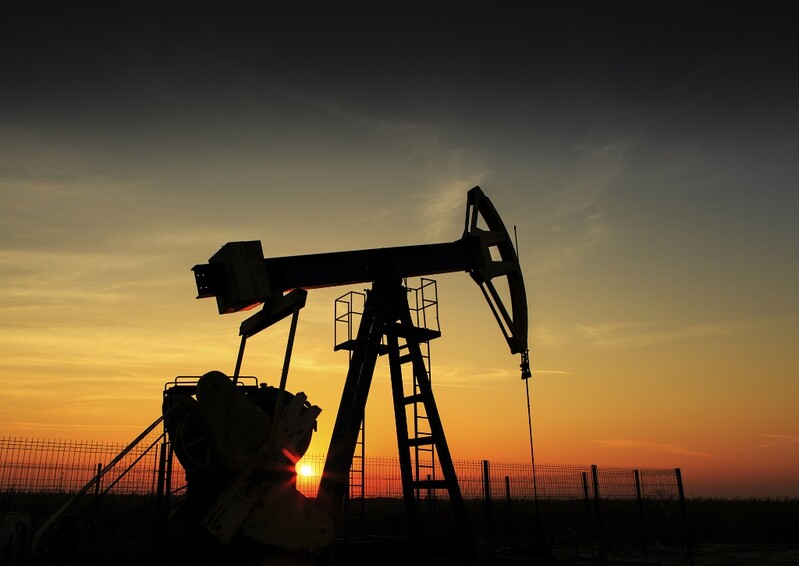Warning of an impending financial implosion driven largely by fossil fuel industry deception, a recent report calls on fossil fuel insiders and other potential whistleblowers to help expose and prosecute this fraud.
According to this new report from the National Whistleblower Center (NWC) published July 23, fossil fuel executives’ deception on the financial risks of climate change—to their business and the economy at large—is widespread and is likely actionable fraud, meaning that further securities fraud lawsuits against companies like ExxonMobil should be expected particularly if whistleblowers come forward to work with financial regulators and prosecutors.
“In light of the deceptions we found, the handful of pending fraud cases challenging climate risk disclosures by fossil fuel companies are probably just the tip of the iceberg,” said John Kostyack, NWC Executive Director and lead author of the report, titled Exposing a Ticking Time Bomb: How Fossil Fuel Industry Fraud is Setting Us Up for a Financial Implosion – and What Whistleblowers Can Do About It. “We anticipate that the number of cases and defendants will increase dramatically in the near future once potential whistleblowers learn about the benefits of modern whistleblower laws and begin providing information to regulators and prosecutors about climate risk deceptions along the lines of those outlined in our report.”
Read our report about on how fossil fuel industry deception regarding the financial risks of climate change could contribute to a worldwide financial implosion, and how #whistleblowers can help prevent it. https://t.co/aVdW2R0567
— National Whistleblower Center (@StopFraud) July 30, 2020
Climate risks include physical risks from climate-related damage to property and infrastructure, as well as transition risks as the world moves away from fossil fuels. Both types of risk “uniquely threaten the finances of fossil fuel companies,” according to the report, and these companies “are therefore highly motivated to conceal their exposure to these risks.” Investors and the larger economy that are deeply intertwined with the fossil fuel sector face serious harm when these climate risks are not disclosed, the report argues.
There is currently no standardized framework or law requiring corporate climate risk disclosure in the United States. Senator Elizabeth Warren (D-MA) has introduced a bill that addresses this gap, and has urged federal financial regulators to mandate climate risk disclosure from public companies. Large investors managing almost $1 trillion in assets (such as pension funds) recently sent a letter to the Federal Reserve, the Securities and Exchange Commission, and other financial regulators warning that the climate crisis is a systemic threat to the economy and calling for mandatory climate risk disclosures.
In March the Senate Democrats’ Special Committee on the Climate Crisis held a hearing where economic experts warned of a potential financial crisis similar to the 2008 economic crash, but this time brought on by the climate crisis. And in June over 60 central banks around the world warned that global GDP could drop by 25 percent by the end of the century without urgent action to reduce greenhouse gas emissions that cause climate change.
Since those emissions come mainly from fossil fuels, companies in the business of powering the economy with oil, gas and coal face an existential threat as society transitions away from these fuels to clean energy, a shift that science says is necessary to mitigate the climate crisis. As the National Whistleblower Center report explains, “failure by companies holding significant fossil fuel assets to participate in the ‘energy transition’ could leave the energy sector with billions of dollars in stranded assets and, given the risks of sudden and massive deflation of assets, pose a severe threat to the world’s financial system.”
Besides stranded assets, other risks that many fossil fuel companies fail to disclose, as identified in the report, include: fossil fuel companies’ vulnerability to competition from alternative energy; justifications for what may be overinflated or optimistic pricing and demand assumptions for their products; their lack of clear and proven strategies for reducing carbon emissions; potential environmental liabilities including potential payments for climate damages; vulnerability of their infrastructure to climate-related disasters, and larger systemic risks to the global economy stemming from climate change.
More Climate-Related Fraud Lawsuits?
The National Whistleblower Center report points to a need for “greater accountability in the fossil fuel industry” and discusses several lawsuits seeking to hold companies like ExxonMobil accountable for alleged fraud, or deceiving investors and consumers on the risks of climate change.
One high-profile securities fraud lawsuit filed by the New York attorney general against Exxon went to trial in October 2019 and resulted in a ruling that Exxon did not mislead investors on its climate accounting methods. That decision focused on a narrow issue, with the judge emphasizing in his order, “Nothing in this opinion is intended to absolve Exxon Mobil from responsibility for contributing to climate change in the production of its fossil fuel products.”
While Exxon was on trial in New York, the attorney general of Massachusetts sued the company claiming it misled Massachusetts’ investors and consumers in violation of the state’s consumer protection statute. As the NWC report notes, it is the “first legal action to address a failure to disclose systemic risk,” since the complaint (amended in June 2020) accuses Exxon not only of deceiving investors and consumers on climate risks to the company’s business but of failing to grapple with the impacts of climate change on the larger economy and world financial markets.
“The climate risk fraud case filed by the Commonwealth of Massachusetts against Exxon in 2019 is significant because it alleges misleading statements and omissions by Exxon about climate risk that we find are pervasive in the industry,” the report states. “Similar cases against Exxon have been brought by shareholders in federal courts in Texas and New Jersey and by a group of whistleblowers in a petition to the SEC.”
And these cases “are likely just the tip of the iceberg,” the report says, with the “number of cases and defendants” expected to proliferate with assistance from potential whistleblowers.
“Whistleblowers have played a critical role in reining in fraud in industries ranging from tobacco to banking to health care,” the report explains. “Lessons from those industries must now be harvested so that a new generation of whistleblowing can begin in the fossil fuel industry.”
Main Image Credit: Penn State via Flickr, CC BY–NC–ND 2.0
Subscribe to our newsletter
Stay up to date with DeSmog news and alerts







